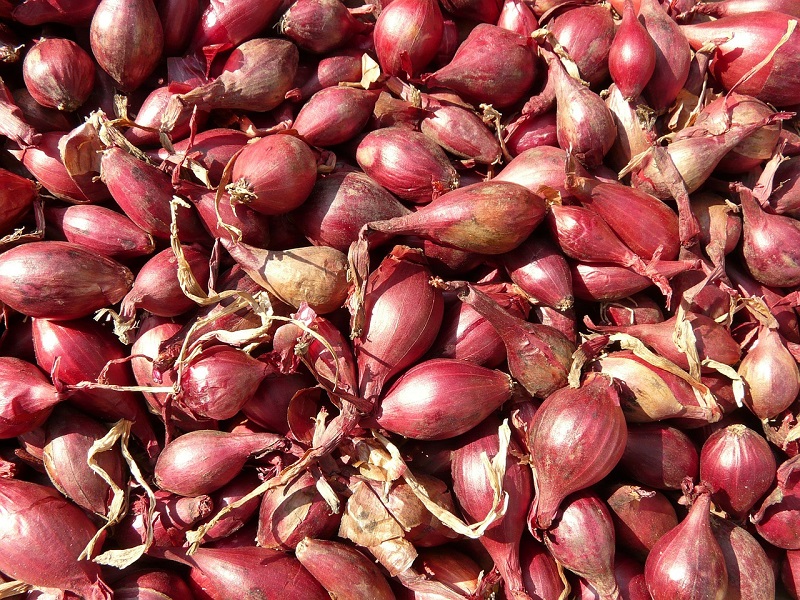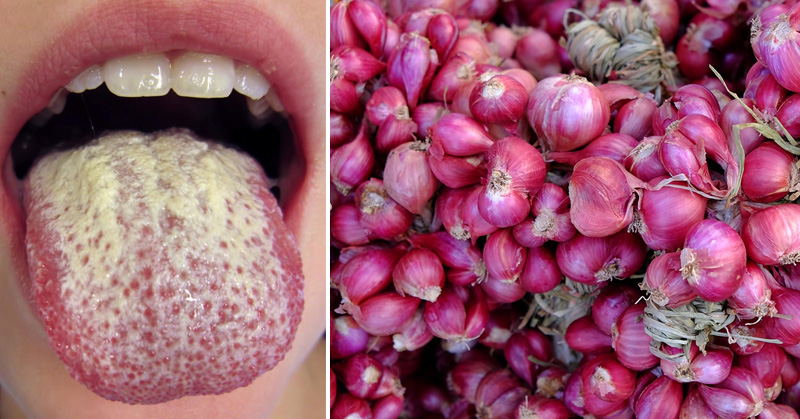What is a shallot? A shallot is a type of onion that possesses strong anti-cancer properties, along with plenty of other health benefits. The health benefits of a shallot stem from the Vitamin A, Vitamin C and powerful antioxidants it contains. Commonly used in Ayurvedic medicine, shallots can heal both internal and external ailments. Shallot health benefits include the ability to improve heart health, lower inflammation, relieve muscle cramps, control blood sugar levels and even fight cancer.
Shallot Health Benefits
1. Fight Cancer
What is a shallot good for? For starters, shallot health benefits include the ability to fight cancer. According to research published in the Asian Pacific Journal of Cancer Prevention, the ethyl acetate extracts (EEOs) found in shallots are able to help slow down the growth of cancerous cells. Allium vegetables, like shallots, have the ability to induce apoptosis or cell death in cancerous cells. Research has shown that shallot health benefits may include a reduced risk of certain cancers, including breast, stomach and colon cancers. (1)
2. Improve Heart Health
If you’ve ever wondered, “What is a shallot good for?” the benefits don’t stop at cancer protection, although that’s reason enough to add shallots to your diet. Many health benefits of a shallot stem from the powerful antioxidants it contains, including allicin and quercetin. These antioxidants are known to help lower blood pressure and protect the cardiovascular system. Allicin works to improve circulation and dilate blood vessels to prevent atherosclerosis. Shallot health benefits also include the ability to fight inflammation and reduce the risk of heart attacks and stroke. The potassium that shallots contain also helps promote a healthy heart.
3. Help Maintain Strong Bones
Health benefits of a shallot include strong bones. A 2004 analysis found a correlation between increased onion consumption and increased bone density. Research suggests that older women who consume onions on a regular basis may be able to decrease their risk of hip fracture by more than 20%, compared to women who never consume onions.

4. Can Help Prevent and Treat Allergies
What is a shallot good for when it comes to food allergies? Shallot health benefits include the ability to prevent and treat them. Studies have shown that shallots have anti-allergenic properties. Health benefits of a shallot include anti-histaminic, anti-inflammatory and antioxidant activities. Researchers found that when shallot extract was given to mice, the mice experienced a reduced histamine release. Shallot health benefits also include the ability to help heal leaky gut syndrome autoimmune diseases related to allergies. (2)
5. Can Help Control Blood Sugar Levels
Shallots, like onions, have natural anti-diabetic properties. Studies have shown that shallots have positive effects on insulin levels and can help control weight gain. According to research from the University of Michigan, eating onions on a regular basis can help lower blood sugar levels to prevent and reverse diabetes.
6. Improve Circulation and Detoxification
Health benefits of a shallot include the ability to cleanse liver toxins by improving circulation and stimulating detoxification. What is a shallot good for when it comes to liver health? Shallots help naturally cleanse the liver by reducing inflammation, lowering oxidative stress and promoting the removal of carcinogens and toxins from the body.
7. Provide Antibacterial and Antiviral Properties
Like garlic, shallots produce biochemical reactions that can help fight viruses and inflammation. Shallots and onions also posses anti-fungal properties that can help fight candida and other infections. Research has shown that the allicin found in shallots offers powerful antimicrobial effects against many strains of bacteria. (3)


